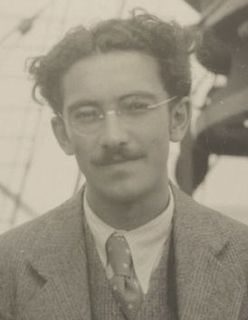 W
WMurray Adaskin, was a Toronto-born Canadian violinist, composer, conductor and teacher. After playing violin with a band, he studied composition and became the director of the Music department of the University of Saskatchewan. Many of his compositions were written while in Victoria after his retirement.
 W
WViolet Louise Archer was a Canadian composer, teacher, pianist, organist, and percussionist. Born Violet Balestreri in Montreal, Quebec, in 1913, her family changed their name to Archer in 1940. She died in Ottawa on 21 of February 2000.
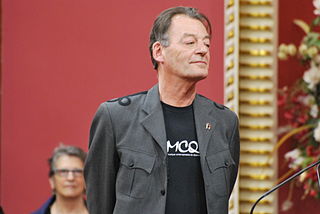 W
WWalter Boudreau, is a Canadian composer, saxophonist and conductor. In 1969, he founded the group L'Infonie with Raoul Duguay, which dissolved in 1973. Since 1988, he has been the artistic director of the Société de musique contemporaine du Québec in Montreal. He was a principal collaborator in the Symphonie du Millénaire which took place in Montréal in 2000. In May 2015 Boudreau received a Governor General's Performing Arts Award, Canada's highest honour in the performing arts.
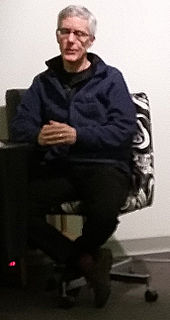 W
WTimothy Wesley John Brady is a Canadian composer, electric guitarist, improvising musician, concert producer, record producer and cultural activist. Working in the field of contemporary classical music, experimental music, and musique actuelle, his compositions utilize a variety of styles from serialism to minimalism and often incorporate modern instruments such as electric guitars and other electroacoustic instruments. His music is marked by a synthesis of musical languages, having developed an ability to use elements of many musical styles while retaining a strong sense of personal expression. Some of his early recognized works are the 1982 orchestral pieces Variants and Visions, his Chamber Concerto (1985), the chamber trio ...in the Wake..., and his song cycle Revolutionary Songs (1994).
 W
WGena Branscombe was a Canadian pianist, composer, music educator and choir conductor who lived and worked in the United States.
 W
WHenry Dreyfuss Brant was a Canadian-born American composer. An expert orchestrator with a flair for experimentation, many of Brant's works featured spatialization techniques.
 W
WHoward Reid Cable was a conductor, arranger, music director, composer, and radio and television producer. He was born in Toronto, Ontario, Canada.
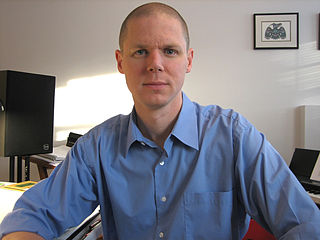 W
WDerek Charke is a Canadian classical composer and flutist.
 W
WBrian Cherney is a Canadian composer currently residing in Montreal, Quebec.
 W
WJoseph Pierre Alexis Contant was a Canadian composer, organist, pianist, and music educator. Trained as a pianist, he became one of the first Canadians to compose large-scale choral and orchestral works, in spite of the difficulty of finding suitable teachers of musical composition. His younger years were spent mostly in teaching, family, and work as a church organist, and many of his compositions were written later in life.
 W
WRichard Covey is a Canadian composer who is currently an Assistant Professor of Theory and Composition in the Department of Music at the University of Prince Edward Island.
 W
WJeffrey W. Danna is a Canadian composer.
 W
WRobert Nathaniel Dett, often known as R. Nathaniel Dett and Nathaniel Dett, was a Canadian-American Black composer, organist, pianist, choral director, and music professor. Born and raised in Canada until the age of 11, he moved to the United States with his family and had most of his professional education and career there. During his lifetime he was a leading Black composer, known for his use of African-American folk songs and spirituals as the basis for choral and piano compositions in the 19th century Romantic style of Classical music.
 W
WKyle Bobby Dunn is a Canadian composer, arranger, and live performer of modern compositional and guitar based drone music. He has performed in live and exclusive outdoor settings, including Banff National Park, since 2000 and has released music on various international recording labels.
 W
WSophie-Carmen Eckhardt-Gramatté was a Russian-born Canadian composer and virtuoso pianist and violinist.
 W
WArne Eigenfeldt is a Canadian composer and creator of interactive and generative music systems based in Vancouver, British Columbia. Both his music and his research into intelligent systems have been presented internationally. He is currently a professor of music at Simon Fraser University. He also produces electronica under the pseudonyms Raemus and loadbang.
 W
WJohn Estacio is a contemporary Canadian composer of opera, orchestral and choral music.
 W
WMalcolm Forsyth, was a South African and Canadian trombonist and composer. His daughter is former National Arts Centre Orchestra principal cellist Amanda Forsyth.
 W
WAllan Gilliland is a contemporary Canadian composer.
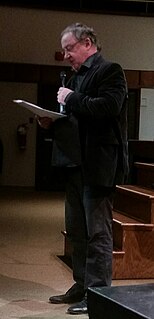 W
WDenis Gougeon is a Canadian composer and music educator. His more than 80 compositions encompass a wide variety of genres, including orchestral works, chamber music, opera, ballet, and pieces for solo instruments and voice. Notable ensembles to have included his compositions in their performance repertoire include the Bavarian State Ballet, the Canadian Opera Company, the I Musici de Montréal Chamber Orchestra, Le Nouvel Ensemble Moderne, New Music America, the Norwegian National Opera and Ballet, the Quebec Contemporary Music Society, and the Vancouver New Music Society.
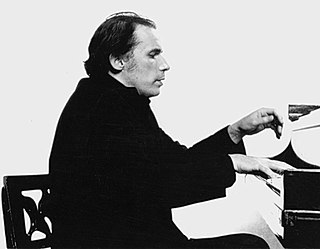 W
WGlenn Herbert Gould was a Canadian classical pianist. He was one of the best known and most celebrated pianists of the 20th century, and was renowned as an interpreter of the keyboard works of Johann Sebastian Bach. Gould's playing was distinguished by a remarkable technical proficiency and a capacity to articulate the contrapuntal texture of Bach's music.
 W
WSusie Frances Harrison née Riley was a Canadian poet, novelist, music critic and music composer who lived and worked in Ottawa and Toronto.
 W
WCharles Albert Edward Harriss was an English then Canadian composer, impresario, educator, organist-choirmaster and conductor.
 W
WFrantz Jehin-Prume was a Canadian violinist, composer, and music educator of Belgian birth. He began his career as a highly successful concert violinist in Europe. From 1865 on he lived and worked mainly in Montreal, Canada; becoming one of the most important 19th century musical figures in Quebec. He became a naturalized Canadian citizen in 1868.
 W
WMinuetta Shumiatcher Borek Kessler was a Russian-born Canadian and later American concert pianist, classical music composer, and educator. A child prodigy, she performed her first composition at a recital at the age of 5 in Calgary, Alberta, Canada, and went on to study at the Juilliard School in New York City. She composed hundreds of pieces, including music for piano, violin, voice, flute, clarinet and cello, as well as for chamber ensembles. She performed all over Canada and in Boston and New York, including performances at Carnegie Hall and The Town Hall, and with the Boston Civic Symphony and the Boston Pops. The New York Times called her "a rare phenomenon among the younger pianists of today – more musician than pianist". She also taught musical composition to young children, creating and patenting a game called "Staftonia" for this purpose.
 W
WGideon Gee-Bum Kim is a Korean-Canadian classical music composer, conductor, and music educator and founder of the Toronto Messiaen Ensemble. His music draws on his Christian faith and shows a connection of the rich musical heritage of Korea and new compositional techniques, especially in the field of heterophony texture and all of this with live and emotional imagination.
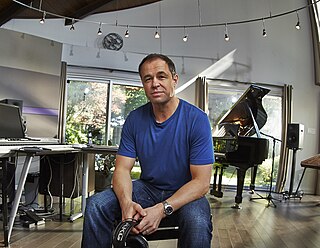 W
WGary Koftinoff is an award winning Canadian Film Score composer of music for film and television.
 W
WNikolai Sergeevich Korndorf was a Russian and Canadian composer and conductor. He was prolific both in Moscow, Russia, and in Vancouver, British Columbia, Canada.
 W
WAnne Lauber is a Canadian composer, conductor, and music educator. A member of the Canadian League of Composers and an associate of the Canadian Music Centre, she has been commissioned to write works by the Quebec Symphony Orchestra, the Toronto Symphony Orchestra, the Canadian Music Competitions, the Canada Council, and the Ministère des Affaires culturelles du Québec among many other groups. In 1985 she was awarded first prize for her Arabesque at the International Guitar Competition in Marl, Germany. She became a naturalized Canadian citizen in 1972. In 2007 the Eastman School of Music featured her in the school's Women in Music Festival. Her son Tristan Lauber is a successful concert pianist.
 W
WCalixa Lavallée was a French-Canadian-American musician and Union Army band musician during the American Civil War. He is best known for composing the music for "O Canada," which officially became the national anthem of Canada in 1980, after a vote in the Senate and the House of Commons. The same 1980 Act of Parliament also changed some of the English lyrics. A slight alteration to the English lyrics was made again in 2018. The original French lyrics and the music, however, have remained unchanged since 1880.
 W
WCélestin Lavigueur was a French Canadian musician and composer.
 W
WEarl MacDonald is a Canadian pianist, composer, arranger, conductor, recording artist, and educator specializing in jazz. Described as "a magical, musical alchemist of hip hybrids", MacDonald's compositional work frequently draws upon other musical styles, fusing them with jazz. The Winnipeg native has been employed as director of jazz studies at the University of Connecticut since the fall of 2000.
 W
WDavid MacIntyre is a Canadian composer of opera, music theatre, choral, orchestral and chamber music, and site-specific works in dance and theatre, based in Vancouver. He is a professor of Music Composition at Simon Fraser University in Vancouver. His music has been performed in more than thirty countries.
 W
WAndré Mathieu was a Canadian pianist and composer.
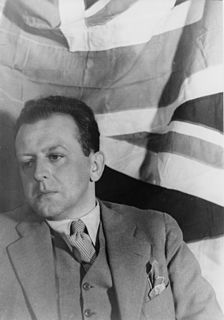 W
WColin Carhart McPhee was a Canadian-born Indonesian composer and musicologist. He is best known for being the first Western composer to make an ethnomusicological study of Bali, and for the quality of that work. He also composed music influenced by that of Bali and Java decades before such compositions that were based on world music became widespread.
 W
WAlbertine Morin-Labrecque was a Canadian pianist, soprano, composer, and music educator. Her compositional output includes 4 ballets, 2 comic operas, the Chinese Opera Pas-chu, 2 concertos for two pianos, the symphonic poem Le Matin, numerous symphonic works, and compositions for band. Her works have been published by a variety of companies. A square and a street in Montreal were named after her in 1984.
 W
WJocelyn Morlock ) is a Canadian composer and music educator based in Vancouver. Her piece My Name is Amanda Todd won the 2018 Juno Award for Classical Composition of the Year.
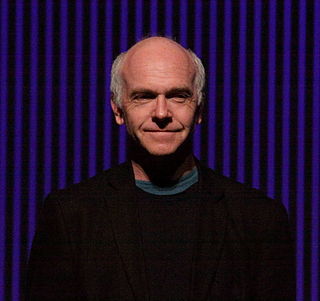 W
WJohn Oswald is a Canadian composer, saxophonist, media artist and dancer. His best known project is Plunderphonics, the practice of making new music out of previously existing recordings.
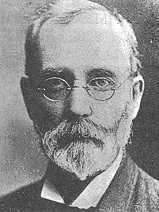 W
WRomain-Octave Pelletier I was a Canadian organist, pianist, composer, writer on music, and music educator.
 W
WJoseph Quesnel was a French Canadian composer, poet, playwright and slave-trader. Among his works were two operas, Colas et Colinette and Lucas et Cécile; the former is considered to be the first Canadian opera.
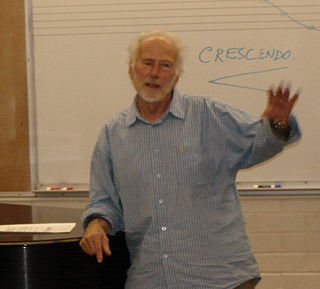 W
WRaymond Murray Schafer is a Canadian composer, writer, music educator and environmentalist perhaps best known for his World Soundscape Project, concern for acoustic ecology, and his book The Tuning of the World (1977). He was notably the first recipient of the Jules Léger Prize in 1978.
 W
WAnita Sleeman was a Canadian contemporary classical music composer. She was also a conductor, arranger, educator, and performer.
 W
WHarry Stewart Somers, CC was one of the most influential and innovative contemporary Canadian composers of the past century. Possessing a charismatic attitude and rather dashing good-looks, as well as a genuine talent for his art, Somers earned the unofficial title of "Darling of Canadian Composition." A truly patriotic artist, Somers was engaged in many national projects over the course his lifetime. He was a founding member of the Canadian League of Composers (CLC) and as such, was involved in the formation of other Canadian music organizations, including the Canada Council for the Arts and the Canadian Music Centre. He frequently received commissions from the Canadian Broadcasting Corporation and the Canada Council for the Arts.
 W
WJames Tenney was an American composer and music theorist. He made significant early musical contributions to plunderphonics, sound synthesis, algorithmic composition, process music, spectral music, microtonal music, and tuning systems including extended just intonation. His theoretical writings variously concern musical form, texture, timbre, consonance and dissonance, and harmonic perception.
 W
WPeter Anthony Togni is a freelance Canadian composer and broadcaster based in Halifax, Nova Scotia. "Togni's music is deeply felt, simply put, well-crafted and irradiated by a personal sense of the divine."
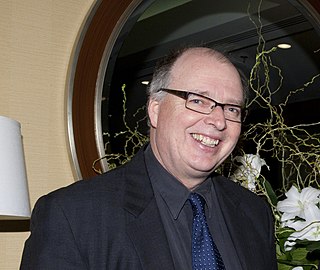 W
WOwen Underhill is a Canadian composer, flutist and conductor based in Vancouver. He is currently a professor of music at Simon Fraser University. He has been an active contributor to the new music scene on the West Coast, as a flutist, as co-music director of Western Front New Music (1982-3), as the artistic director (1987–2000) of the Vancouver New Music Society, and as a conductor in Magnetic Band and the Turning Point Ensemble, for which he is also currently the Artistic Co-Director.
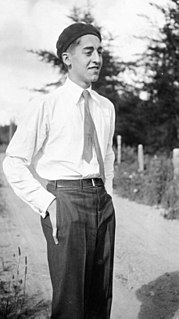 W
WJean Vallerand, CQ was a composer, music critic, violinist, conductor, arts administrator, writer, and music educator from Quebec. As a composer he was active from 1935 to 1969. An associate of the Canadian Music Centre, he was appointed a Knight of the National Order of Quebec in 1991.
 W
WFrançois-Joseph Vézina was a Quebec conductor, composer, organist and music professor. Vézina is buried in the Cimetière Notre-Dame-de-Belmont in Sainte-Foy.
 W
WJames Healey Willan (1880–1968) was an Anglo-Canadian organist and composer. He composed more than 800 works including operas, symphonies, chamber music, a concerto, and pieces for band, orchestra, organ, and piano. He is best known for his church music.